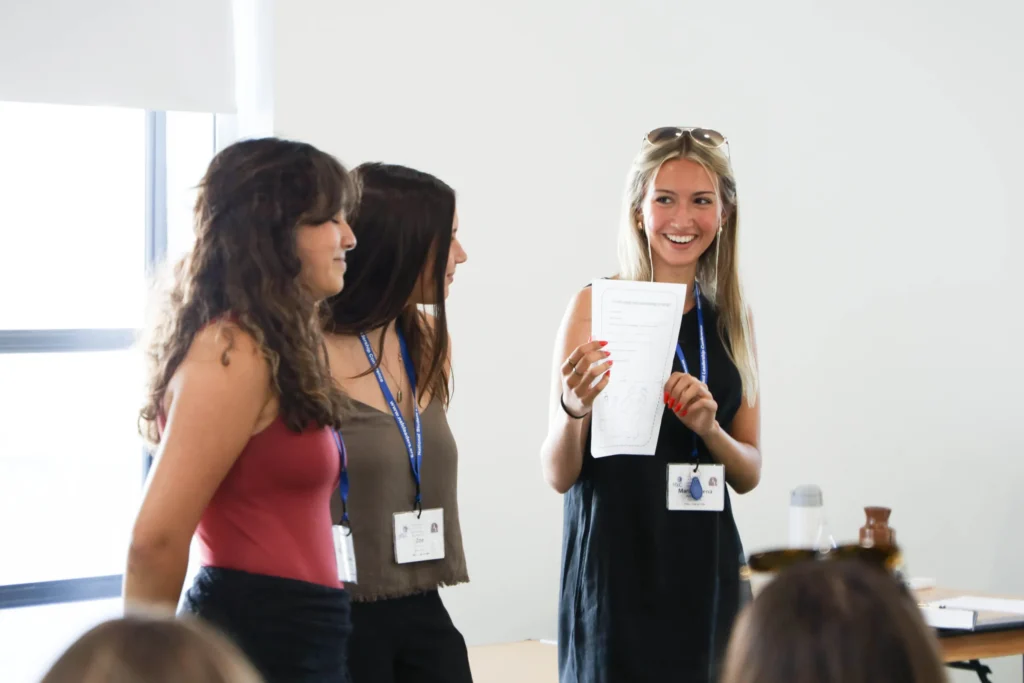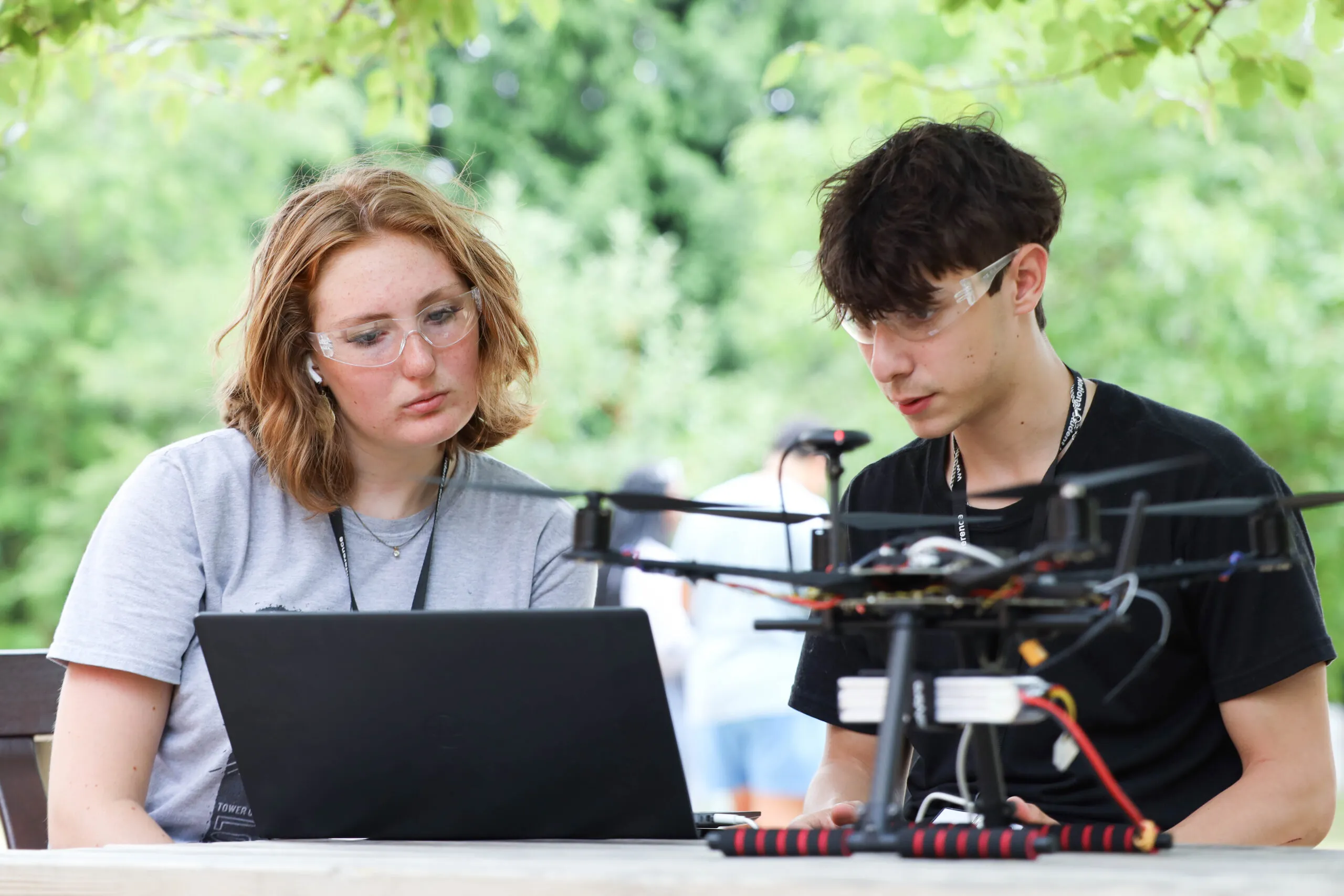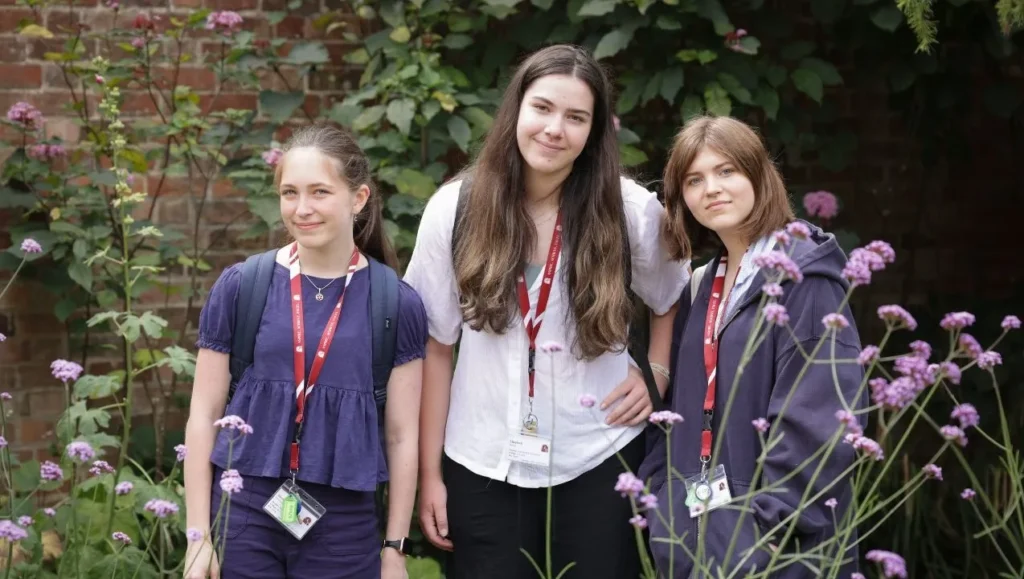Artificial Intelligence & Computer Science

For Ambitious Scholars Aged 14–18

2-15 August
2026

£6,499 OSP Experience Fee

100 Exceptional Global Scholars
Key Features
- Project-based learning
- Small class sizes
- Project report and presentations
- Official transcripts
- Letter of recommendation
- Earn 8 UCAS points
Join the Leading Artificial Intelligence Summer School in Oxford
Join our Artificial Intelligence Summer School in Oxford, where innovation and practical experience converge. Master key AI concepts, programming skills, and real-world applications, preparing you to excel in this transformative field and shaping the future of technology.
- Understand how machines learn and process information like humans.
- Build, test, and refine AI models to solve problems.
- Explore real-world uses such as image recognition and chatbots.
- Develop Python coding skills for AI projects.
- Learn about the ethical responsibilities in AI design and use.

- Access pre-recorded lectures and essential readings to build foundational knowledge.
- Discuss key concepts, ask questions, and deepen your understanding.
- Apply theories to real-world scenarios through hands-on activities and case studies.
- Candidates will be judged on their contributions towards group projects and presentations alongside their performance on individual reports.

- Learn the core ideas behind machine learning, deep learning, and AI applications.
- Build essential Python coding skills for developing AI models.
- Explore the ethical responsibilities of designing and using AI.
- Work with peers on hands-on projects that apply real-world AI concepts.

Week 1
Day 1: Introduction to General Intelligence and Artificial Intelligence
Day 2: Fundamentals of Programming and Data Structures
Day 3: Introduction to Machine Learning
Day 4: Information Processing and Representation in the Human Brain
Day 5: Deep Learning Basics: Artificial Neural Networks – Theory
Week 2
Day 6: Deep Learning Basics: Artificial Neural Networks – Applications
Day 7: Building AI Models
Day 8: AI Model Testing and Performance Enhancement
Day 9: Ethics and AI: Navigating Challenges in the Digital Age
Day 10: Project Presentations
Note: This course plan may be adjusted at the discretion of the Instructor.
The OSP Challenge
Learning at the Oxford Scholars Programme goes far beyond the classroom. In our AI Summer Programme 2026, you’ll put theory into practice by collaborating with your peers to solve real-world problems. It’s a hands-on experience that pushes you to think creatively, work strategically, and apply everything you’ve learned throughout the course.

AI Model Development Challenge
Design and build your own AI model using Python and real datasets. Learn how to train, test, and refine it to solve real-world problems – from image recognition to data prediction – and see how theory turns into practical innovation.
The Oxford Scholars Programme offers the NCFE Level 3 Award in Higher Studies, giving 8 UCAS points and adding weightage to your university application.


Julia Stribling
USA

Cristina Solis Lopez
Colombia
What Our Scholars Say
Tutors
Our Scholars are mentored by an outstanding team of accomplished professionals who bring real-world expertise, insight, and a passion for teaching. Their mentorship inspires curiosity, critical thinking, and confidence, creating a truly transformative Pre-College Summer Program experience. Meet some of the distinguished educators leading this journey below.
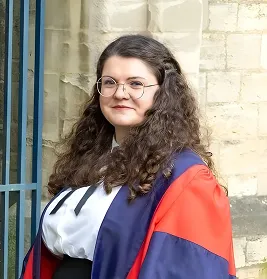
Dr. Cristiana Tisca
AI & Programming
Post-Doctoral Researcher in Neuroimaging at the Wellcome Centre for Integrative Neuroimaging, University of Oxford

Dr. Waqas Kamal
Engineering
Research Fellow at University of Oxford
DPhil in Engineering Science
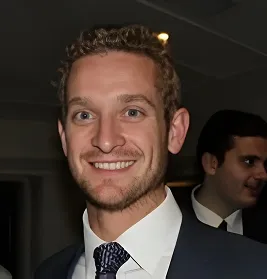
Dr. Nick Dickinson
Politics
Bingham Fellow in Constitutional Studies, University of Oxford
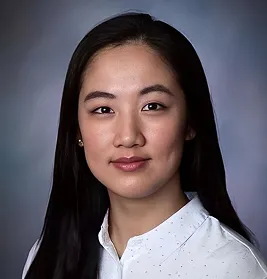
Juliana Choi
Medicine
DPhil Physiology, Anatomy and Genetics
University of Oxford

Dr. Daryna Dvornichenko
Law
British Academy Researcher At Risk and Visiting Research Fellow at Department of Politics and International Relations, University of Oxford

Abbey Palmer
English
MSc in Applied Linguistics and Second Language Acquisition, University of Oxford
Beyond The Classroom
Each summer, a select group of exceptional students from around the world come together in Oxford to learn, grow, and discover who they can become.
Oxford Walking Tours
Discover the charm of Oxford as you stroll through its historic colleges and picturesque cobbled streets.
Punting on the River Cherwell
Enjoy a quintessential Oxford experience gliding down the River Cherwell with friends.
Excursion to London
Spend an unforgettable day exploring London’s world-famous landmarks, culture, and sights.
Ashmolean Museum Visit
Immerse yourself in art, history, and archaeology at the world-renowned Ashmolean Museum.
River Cruise
Relax and unwind on a scenic cruise, taking in the beauty of Oxford’s riverside views.
Games Night
Bond with fellow scholars over friendly competition, laughter, and classic games.
Cultural Night
Celebrate global diversity with music, dance, and traditions from around the world.
Blenheim Palace
Explore the historic beauty of Blenheim Palace, a UNESCO World Heritage Site.
Buckingham Palace
Experience the grandeur of Britain’s royal heritage with a visit to Buckingham Palace.
OSP's Got Talent
Show off your skills and take the stage in OSP’s very own talent showcase.
Formal Dinner
Dress up for an elegant evening of fine dining and cherished memories with friends and mentors.
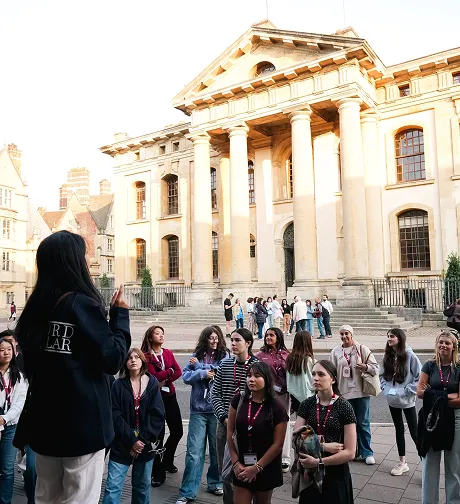





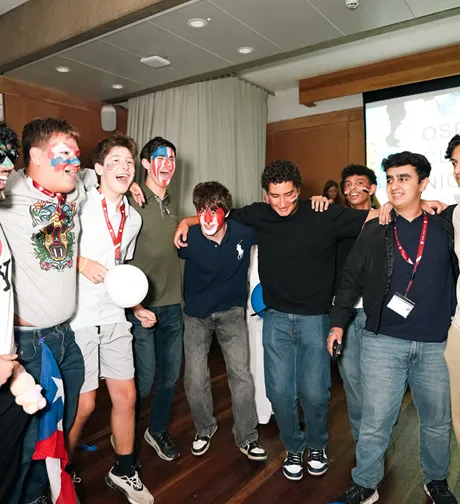


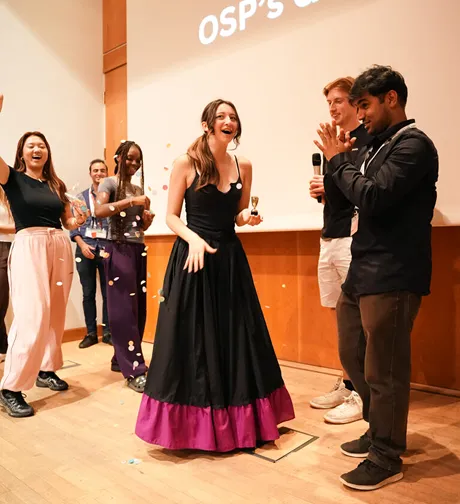


Top Up With Career Exploration
Step into the shoes of a future engineer and discover what a career in innovation truly looks like. Through hands-on industry exposure, real-world problem-solving, and guided visits to leading engineering institutions, you’ll explore how ideas evolve into technology that shapes the future, gaining insight, inspiration, and clarity for your own path in engineering.
- Royal Society London
- BMW Group Mini Plant
- Science Museum
- Institute of Mechanical Engineers
Related Courses

International Relations & Diplomacy Summer School
- 14-18 years
- £6,499
- 2 weeks
Frequently Asked Questions
1. What is the Oxford Artificial Intelligence Summer School at the Oxford Scholars Programme?
The AI Summer School at the Oxford Scholars Programme is a two-week pre-university course for high school students aged 14–18 who want to explore artificial intelligence, machine learning, and data science. Through hands-on projects, seminars, and real-world case studies, our scholars learn how AI shapes industries such as healthcare, engineering, finance, and technology. This immersive programme helps teens build practical skills while experiencing academic life in Oxford.
2. Who can attend the Oxford Artificial Intelligence Summer School at OSP?
This AI summer programme is open to students aged 14–18 from any academic background who are curious about technology, coding, and data science. Whether you’re completely new to AI or already experimenting with Python and algorithms, the course provides a supportive environment where you can build your skills, explore AI concepts, and work on real problem-solving projects.
3. What will I learn during the Oxford Artificial Intelligence Summer School?
Scholars explore core AI topics such as machine learning, neural networks, data analytics, automation, and AI ethics. The programme blends theory with project-based learning, giving you the chance to build simple AI models, interpret datasets, and propose solutions to real-life challenges. By the end, you’ll develop a strong foundation in how AI works and how it’s used across different sectors.
4. How can the Oxford Artificial Intelligence Summer School help with university applications?
This Artificial Intelligence Summer School at Oxford strengthens your university application by showcasing your passion for emerging technologies and your ability to engage with challenging material. Alongside developing skills in machine learning and data science, you’ll take part in unique Oxford-style experiences, such as flying lessons, rowing on the Thames, and academic tutorials that demonstrate leadership, resilience, and initiative. Scholars also receive guidance on future pathways and can request academic references from Oxford tutors, giving your application further credibility.
5. Do I need prior knowledge of AI to attend the Oxford Artificial Intelligence Summer School?
No prior experience is needed. The programme begins with foundational concepts and gradually builds up to more advanced ideas. Scholars new to AI will benefit from step-by-step instruction, while those with existing knowledge will be challenged through deeper exploration and hands-on project work.
6. How can the Oxford Artificial Intelligence Summer School benefit my future career?
The skills learned in this AI summer programme are highly relevant to modern careers. Scholars gain experience in workflow automation, prompt engineering, coding fundamentals, and interpreting data – abilities that are increasingly valued in fields such as engineering, medicine, finance, computer science, and technology. By working on practical AI projects, you develop confidence in creative problem-solving and an understanding of how AI is used in the real world, giving you an early advantage in university studies and future career choices.
7. How is the Oxford Artificial Intelligence Summer School structured?
Each day includes morning tutorials on AI concepts followed by afternoon workshops where our Scholars build models, analyse datasets, and debate the ethical implications of AI. Group projects encourage collaboration, while evening cultural activities allow scholars to experience the historic city of Oxford. This balance of academic depth and experiential learning creates a well-rounded, engaging summer school experience.
8. How do I apply for the Oxford Artificial Intelligence Summer School at OSP?
To apply, visit our official application page and complete the online form. You’ll be asked to submit academic transcripts and a short personal statement. Once applications are reviewed, successful candidates will receive further instructions and next steps. Early applications are encouraged due to limited spaces.
9. What is the cost of attending the Oxford Artificial Intelligence Summer School?
The total cost of the Oxford Artificial Intelligence Summer School includes tuition, accommodation, meals, and all excursions and activities. Scholarships and financial aid options are available to support students from diverse financial backgrounds. Please check our fee page for detailed pricing information and funding options.



